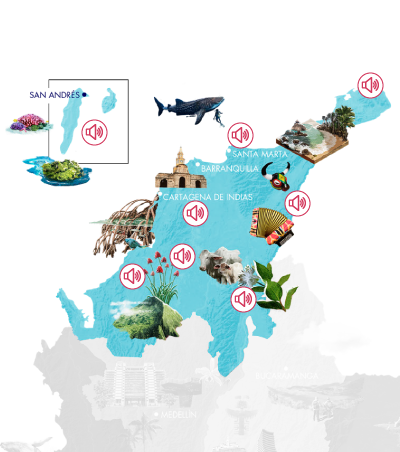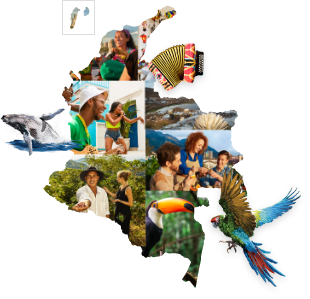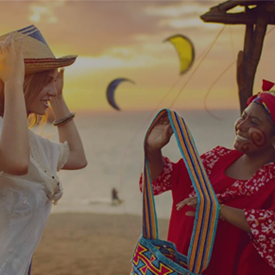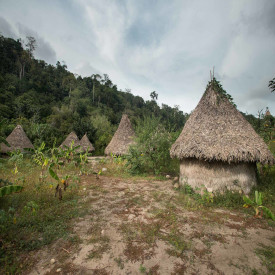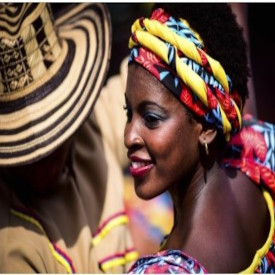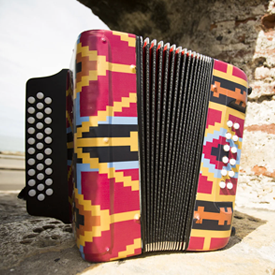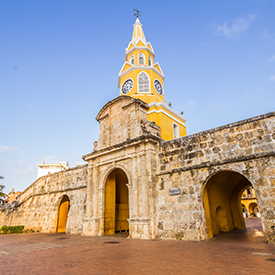The department of Magdalena, the land of plenty
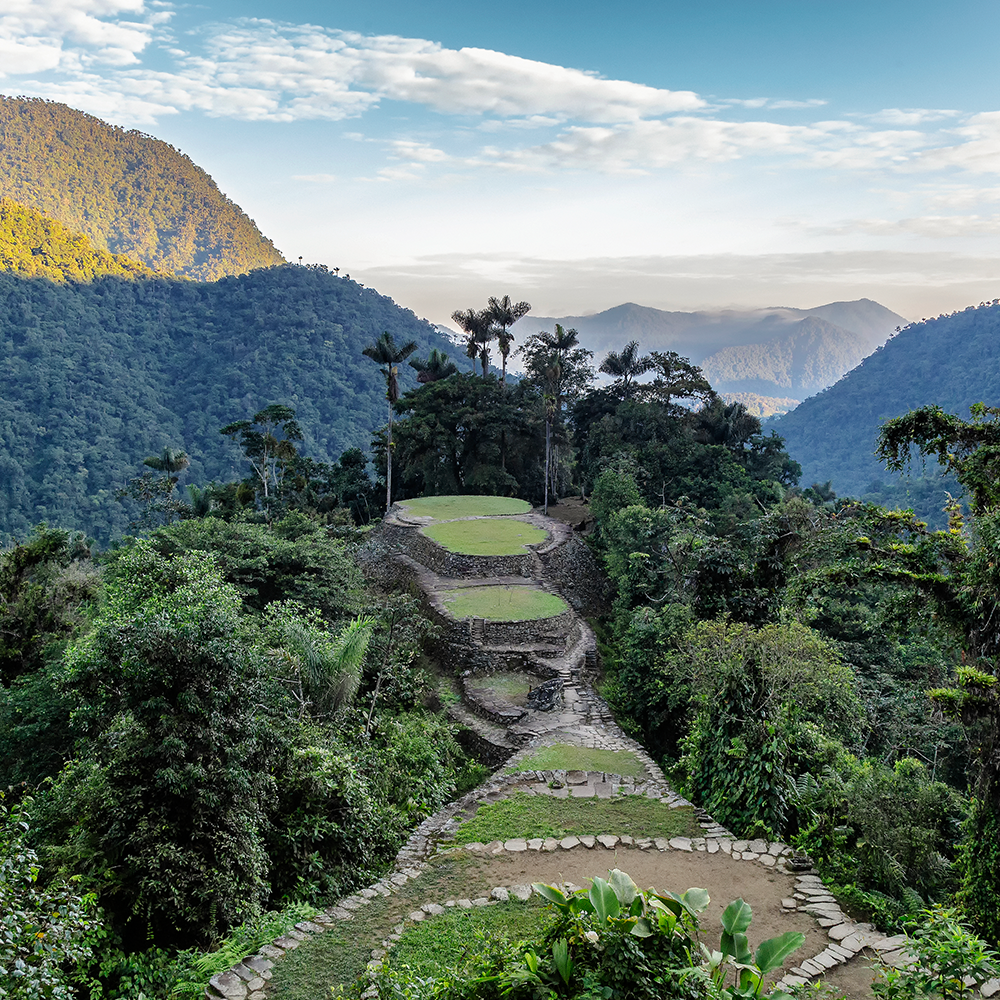
Alt: Panoramic view of the trees around Ciudad Perdida in the department of Magdalena.
The department of Magdalena is a place that has everything from its immense mountains and vast sea to its literary and artistic legacy. A territory in which the fauna and flora converge forming one of the ideal destinations for ecotourism.
This department is part of the Greater Colombian Caribbean. The region that is embraced by the sea and in which you can contemplate the perpetual snows of the Sierra Nevada. Home to indigenous peoples such as the Wayúu and Koguis, also of raizales such as the Palenqueros. The land of valuable contrasts that make this territory much more than the Caribbean.
Culture and history
During the colonial era, in the department was the Port of Santa Marta that helped the growth of the railway system, through which fashion, oils, glassware and what would become one of the most important musical instruments of the Greater Colombian Caribbean, the accordion, arrived in the region.
This department forged its culture from the arrival of Americans, Europeans, Africans and Arabs.
Likewise, in the Magdalena there is an important community of indigenous people such as the Kogis, Arhuacos, Wiwas and Arsarios who have preserved for generations sacred knowledge that revolves around nature. As well as its handicrafts that have become an icon, not only of the department but of the country.
Destinations
The Magdalena is a department surrounded by sea, rivers and swamps. Within its strategic location are important destinations such as Tayrona National Park, Lost City, Taironaka nature reserve, Minca, Vía Isla Salamanca Park and the Quitan de San Pedro de Alejandrino.
There are also other natural destinations such as Taganga, Aracataca, Buritaca, Ciénaga, Fundación, Plato and Gaira.
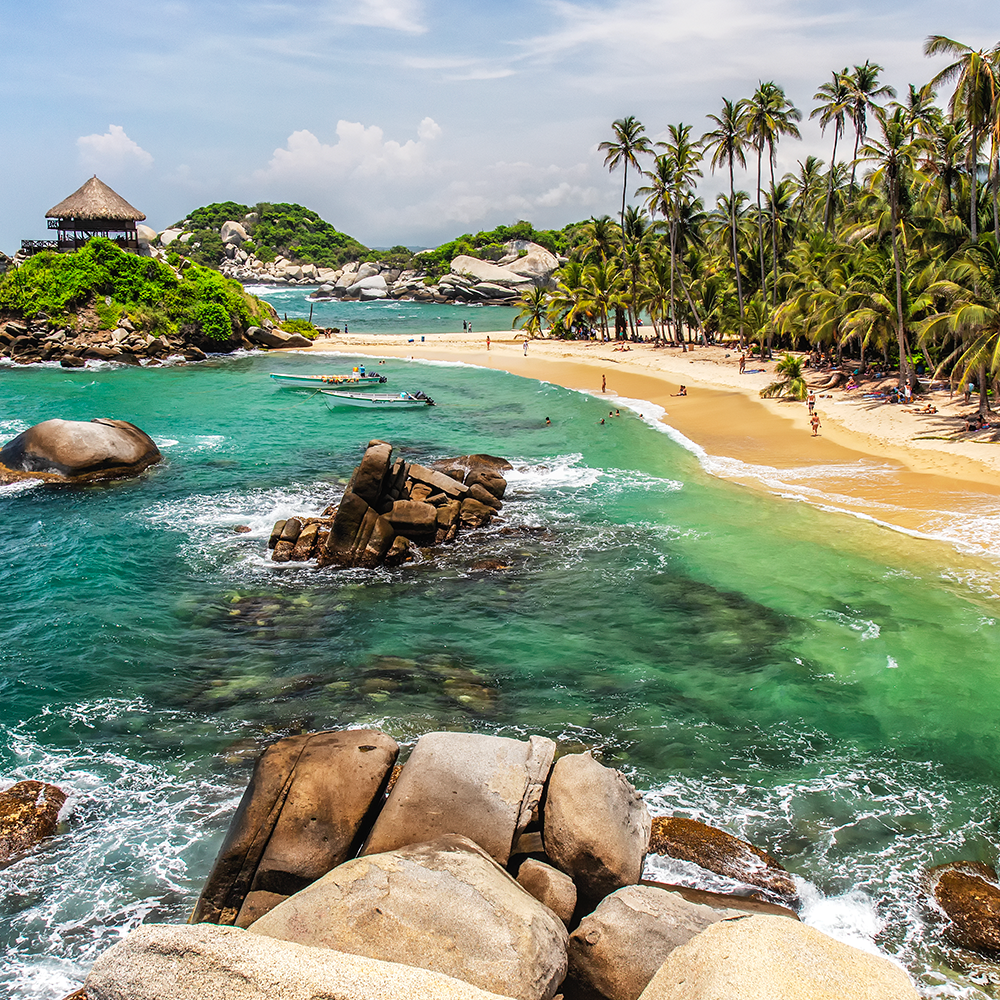
Alt: Panoramic view of Cabo San Juan beach within the Tayrona Park in the department of Magdalena.
Credit: ProColombia
Photo caption: In Tayrona Park you can find different altitudes ranging from sea level to 900 m high.
Featured: Download the magazine about the department of Cesar, where you can learn about its cultural and tourist destinations.
Gastronomy
The gastronomy of Magdalena is one of the most varied in the region, thanks to its fusion of African, indigenous, Arab and European culture. In this department you can find flavors from the river,river or mountains, from which dishes such as ice cream, machuelo, cayeye, salpicón de bonito, hallacas, seafood rice, rice with bonito, bocachico with vitualla and cob bun, breaded fish huevas and fish widow are derived.
Festivities
The Magdalena is a land of folklore, music and culture so festivities such as the National Cumbia Festival, Chandé Festival, Cayman Man Festival on Plate, Fiestas del Mar and Fiestas de los Gallegos are celebrated.
Featured quote: The Cayman Man Festival is derived from the legend of the same name that tells the story of a man who liked to observe women. One day he went to a sorcerer in the upper Guajira for him to make a pity that would turn him into an alligator. With these drinks man became the animal every time he went to the river. But one day the spell went wrong and he became half man, half alligator.
Music and lyrics
In addition to biodiversity, the department of Magdalena is the birthplace of artists and football players such as Carlos Vives, Radamel Falcao García, Carlos "El Pibe" Valderrama, Antonio María Peñaloza, Yuldor Gutiérrez and one of the greatest writers that the country has given, Gabriel García Márquez.
In the same way, it is a land that has seen the birth of musical genres such as vallenato, it is also one of the greatest exponents of Colombian cumbia.
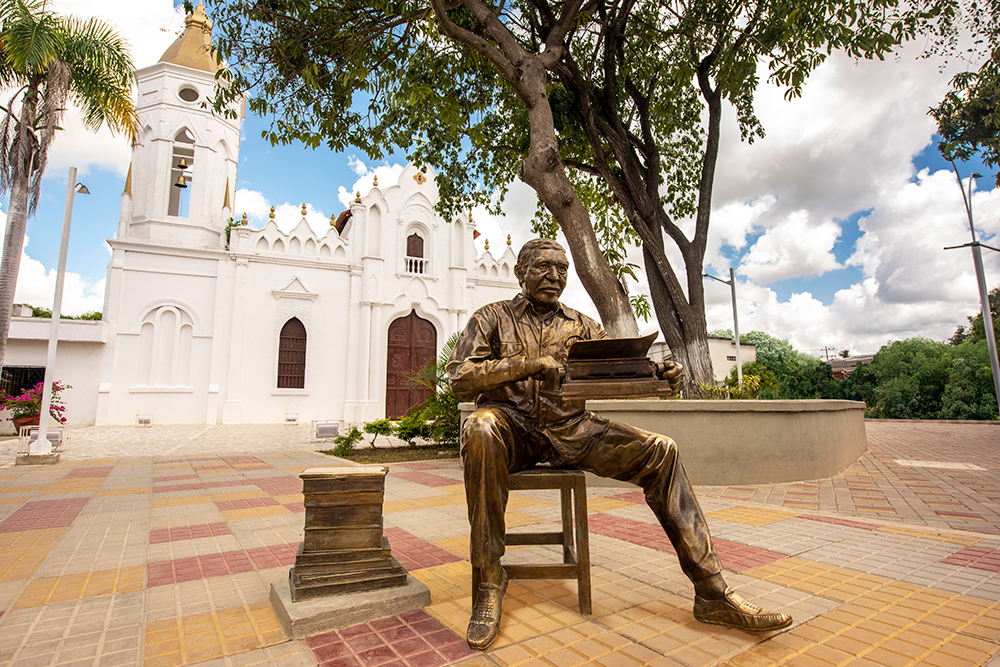
Photo caption: Much of García Márquez's texts were inspired by Aracataca and his family.
Finally, the department of Magdalena is a place that has everything: varied gastronomy, unique natural resources in the world and great exponents of music and art. In addition, it is a territory with great people who are willing to welcome whoever arrives.




